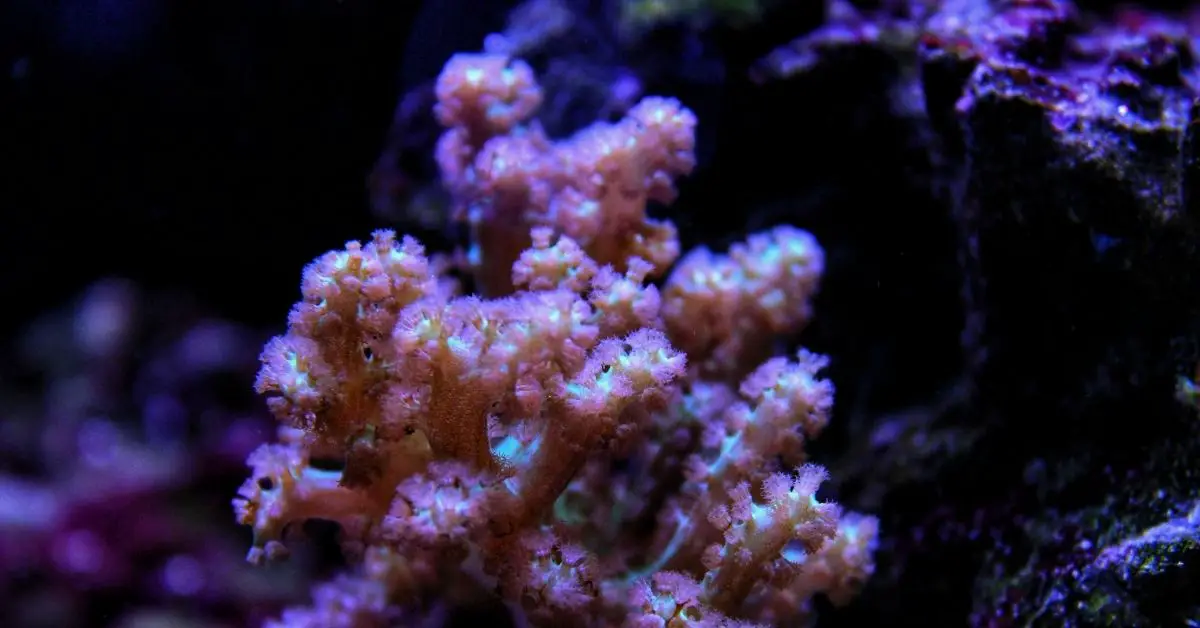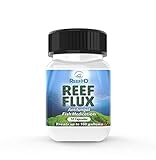Kenya tree corals are a strong and hardy species of soft coral. They don’t need a bunch of finicky care, super pure water, or specialized lighting, like other types of corals. They’re very forgiving and easy to care for, which makes them desirable for beginners.
But, they can become something of an invasive pest. This is because of how fast they grow and how malleable they are to a variety of tank conditions. They can even propagate with next to nothing and grow expediently in a matter of weeks.
Why is my Kenya tree coral not opening in my reef tank?
If you find your Kenya tree coral isn’t opening up, it means something is disturbing it. There are a variety of reasons that can cause this. A neighboring coral could be stinging it or an overzealous fish, like a Clownfish, is bothering it. It could be the coral doesn’t like its current spot or the water parameters are off.
How do I know my Kenya tree coral dying?
Although Kenya trees are very hardy and can tolerate many aquarium conditions, it can show signs of dying. If it doesn’t look plump and puffy, inflated with water while extending its fuzzy-looking branches, it could be in the process of dying.
Instant Ocean Reef Crystals Reef Salt For 160 Gallons, Enriched Formulation For Aquariums
$66.79 (as of November 13, 2025 01:21 GMT +02:00 - More infoProduct prices and availability are accurate as of the date/time indicated and are subject to change. Any price and availability information displayed on [relevant Amazon Site(s), as applicable] at the time of purchase will apply to the purchase of this product.)Seachem Reef Glue Cyanoacrylate Gel Coral Frag Mounting, 20g (001167)
$9.99 (as of February 13, 2026 20:00 GMT +02:00 - More infoProduct prices and availability are accurate as of the date/time indicated and are subject to change. Any price and availability information displayed on [relevant Amazon Site(s), as applicable] at the time of purchase will apply to the purchase of this product.)ReefHD Reef Flux Anti-Fungal Treatment (100 gal)
If it’s slowly withering away, dying back, or melting away, something in the conditions of the tank is wrong. If it smells rotten or showing signs of dieback, move it to an isolated tank to prevent further damage and inspect the problem closer.
Do Kenya tree corals require feeding?
Kenya tree corals do require feeding, but it’s not like others. They are hungrier than most other corals and rely on feeding more than photosynthesis. So, it’s important to observe, monitor, and study their particular eating habits.
They have symbiotic algae, called zooxanthellae, that provide some nutrition via photosynthesis. But they also get nutrients by absorbing them from the water and from catching phytoplankton. They love floating detritus and dissolved organics, everything that naturally occurs in a tank.
What do you feed Kenya tree coral?
Feeding Kenya tree corals phytoplankton about once a week or every other week will boost growth and provide the extra nutrients it needs. But, if you have other corals that are sensitive to dissolved waste, then don’t add large doses of food.
In this case, target feed the Kenya tree coral with a baster-like tool so that the leftovers aren’t prevalent and rotting. This leads to increased levels of nitrate, nitrite, and ammonia which can be bad for other corals and fish residing in the aquarium.
Do Kenya tree corals shed?
Yes, Kenya tree corals drop branches as they grow. This causes new plantings to occur in the tank, sometimes in undesirable and inopportune areas.
Where should I place my Kenya tree coral?
Kenya tree corals should be in an area where the water current has a moderate to high flow with medium lighting. Neither water nor light should be too high or too low. Somewhere in the periphery of the light, not direct heat, will be optimal for this.
Because these particular corals come from the Indo-Pacific Ocean and the Red Sea, you want to recreate those conditions. Their normal habitat is in deep reef areas with clear water, strong currents, and medium light.
They can be in almost any size tank, but because they grow fast, they can easily take over any space. You have to stay on top of pruning to keep the growth under control without overgrowing other corals in the tank.
What are the water parameters for Kenya tree corals?
Aside from proper lighting, Kenya tree corals can handle a wide range of water parameters. Remember, they like a little grime with dissolved nutrients and organic waste. It’s advisable to have mature biological filtration along with some fish to add more nitrogenous waste into the water for the Kenya tree coral to feast on.
Study the native habitat of the specific species of Kenya tree coral because there are some variations between ones that come from the Red Sea versus those that come from the general Indo-Pacific Ocean. The following is what’s most recommended for them:
- Ammonia: zero
- Calcium: 350 to 450 ppm
- Gravity: 1.023 to 1.025
- Hardness: 8 to 12 dKH
- Magnesium: 1200 to 1350 ppm
- Nitrates: 0 to 10 ppm
- Nitrites: zero
- pH: 8.0 to 8.2
- Phosphorous: near zero
- Temperature: 72°F to 82°F
Are Kenya tree corals very aggressive?
Yes, Kenya tree corals are more aggressive than most other corals. They often sting other corals living nearby and will dominate the tank due to the speed at which they will self-propagate. This can result in killing and suffocating other corals. And, because of how rapid propagation occurs, it can easily overtake an aquarium. They colonize almost any available space at an alarming rate.
In one year, a Kenya tree coral can spread throughout the entire ground floor of a tank. They don’t have sweeper tentacles but they do release noxious terpene compounds from their polyps that slow the growth of surrounding corals.
You can control this with activated carbon in your filter. But the downside is that it removes other dissolved organic material that the Kenya tree coral requires for survival and food. Spot feeding will be able to help the coral make up for any other lost organics.
Keeping Kenya Tree Corals in Your Tank
Kenya tree corals are a fairly easy coral to care for. It’s just that they are a bit aggressive, require more food than most other corals, and can take over your tank. Beginners shouldn’t mix too many other corals with them in the same tank until they get used to the specific requirements.
Regardless, they’re a beautiful addition that can add vibrant color and breathtaking views amid any home aquascape. So long as you provide all they need and keep them pruned, they will thrive for many years.











